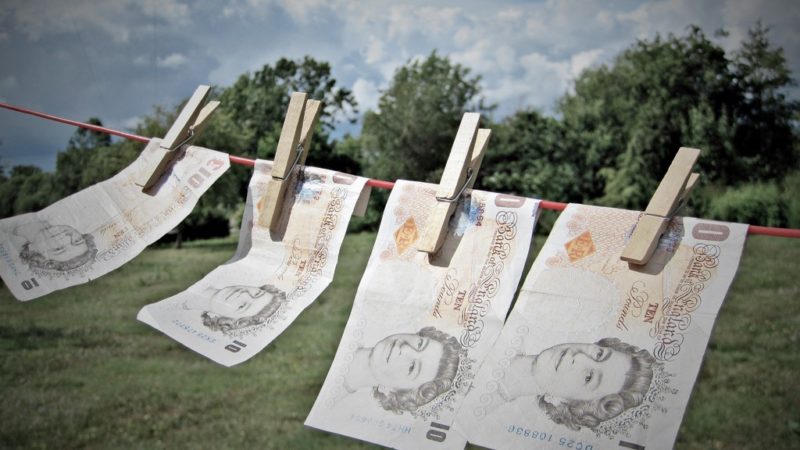'Three quarters of the public support a windfall tax on banks’ excess profits – including 76% of Conservative 2019 voters'

Richard Burgon MP is the Member of Parliament for East Leeds
In the run-up to this week’s Autumn Statement, the Tory press has been pushing for Rishi Sunak to deliver yet more tax cuts for the wealthy.
But this should be a moment to bail out those who have been hit hard by the cost of living crisis – not those who have already done so well out of it.
Just like the energy companies, the banks have been able to use this crisis to line their pockets with windfall profits. So, just like the energy companies, they should face a Windfall Tax on such unexpected and, frankly, unmerited gains.
While millions of people are struggling with their mortgages and rents, the banks have been able to cash in. Higher interest rates have enabled banks to charge households and firms more for loans. But the higher interest rates have not been passed on to savers, creating a huge windfall for banks for doing nothing productive.
The pre-tax profits of the big four banks – Lloyds, Barclays, HSBC and Natwest – are £41bn so far this year. That’s up 79 per cent compared to the same period in 2022, according to Unite the Union.
Campaign group Positive Money says this is almost five times the amount recorded for the same period in 2020, before interest rates started to rise.
After public pressure, the Tories were forced to impose a Windfall Tax on the shameless profiteering of the energy companies. The same should now apply to the banks. We need to step up the campaign for it.
Three quarters of the public support a windfall tax on banks’ excess profits – including 76% of Conservative 2019 voters, according to a poll commissioned for the TUC. While a similar poll also found strong backing for, and just 12% opposed, to a one-off tax on banks.
Based on the latest quarterly results, a Windfall Tax in the UK could raise between £4bn and £16bn this year from the profits of the big four banks alone, depending on the form.
Spain’s progressive Government offers one example. It introduced a 4.8% Windfall Levy on certain bank incomes and commissions above a threshold of 800 million Euros. Replicating that could raise almost £4bn this year here.
Even Margaret Thatcher introduced a form of Windfall Tax with a 2.5% tax on banks’ non-interest bearing deposits. In words that sound all too familiar today, Thatcher said that the banks had “made their large profits as a result of our policy of high interest rates rather than because of increased efficiency or better service to the customer.”
Such a tax in the UK, according to Positive Money calculations, could raise up to £11bn today.
But perhaps the simplest move would be to reverse the tax break for banks that Rishi Sunak introduced.
Sunak has slashed the bank profits surcharge from 8 to 3 percent saying this was to cushion them against the impact of higher corporation tax rates.
But this surcharge, along with the banking levy, was one of the special taxes raised on banks after the financial crash due to the greater risks that banks posed to our wider economic stability. That risk remains and so too should the surcharge.
Sunak’s slashing of the surcharge has been rightly described by TUC General Secretary Paul Novak as starving our public services of much-needed funds at the worst possible time.
Reversing it could provide key funds to, for example, to introduce universal free school meals, scrap the two-child cap or fund a proper pay raise for Junior Doctors.
The TUC estimates that the Treasury will lose at least £1.5 billion a year over the next four years, though they add that it is likely to be more given the recent boost to bank profits. Positive Money estimates that reversing cuts to both the bank surcharge and the levy could be raise over £4 billion this year.
It was a political choice for Rishi Sunak to slash the surcharge on the banks just as it was to scrap the cap on bankers’ bonuses. Doing so is a sign of what is so wrong in our tax system, which repeatedly lets the wealthiest get away with paying lower tax rates than ordinary people.
It’s time we put a stop to that. The banks were bailed out when they were in trouble during the 2007 global financial crisis. It is now time for them to be taxed fairly to help bail out communities who are now in such difficulties.
Left Foot Forward doesn't have the backing of big business or billionaires. We rely on the kind and generous support of ordinary people like you.
You can support hard-hitting journalism that holds the right to account, provides a forum for debate among progressives, and covers the stories the rest of the media ignore. Donate today.



